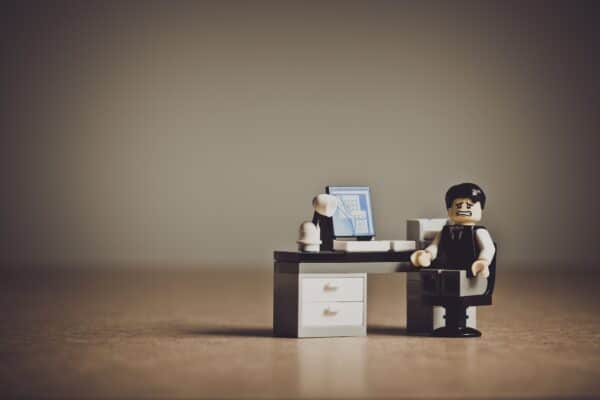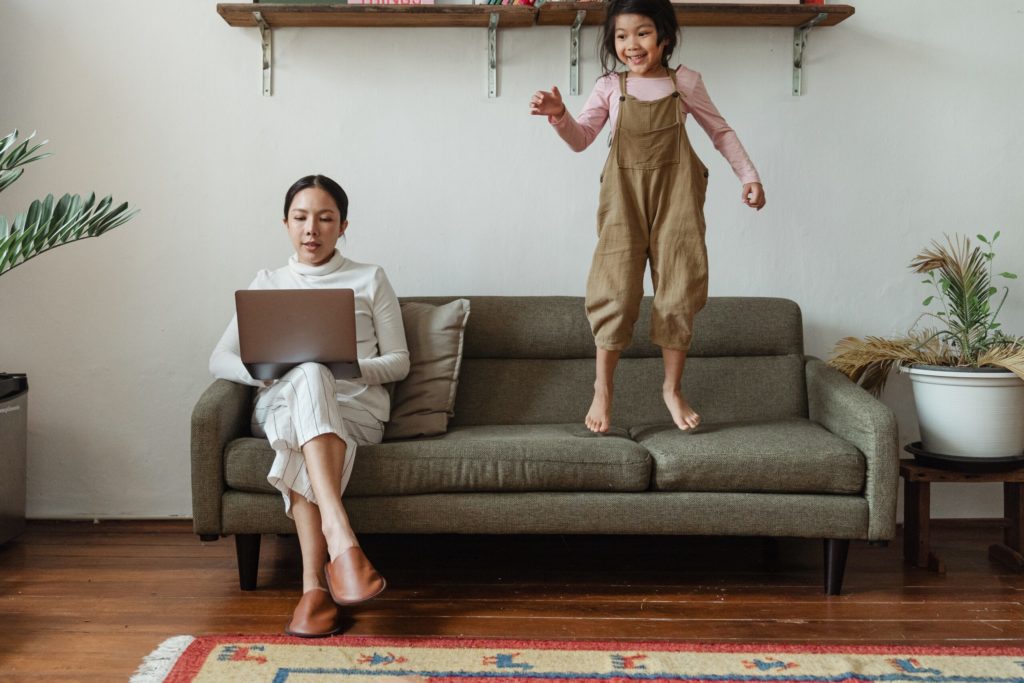Our lives have been turned upside down over the last year and that very much includes our working lives. The closure of offices and workspaces has meant that we’ve had to change where we work. But it’s been much more than just relocating. We’ve had to change how we work too. We’ve had to adapt how we communicate with colleagues, develop new skills, rely more on certain technology.
It’s also allowed us to step away from our usual routines and gain a new perspective on our working lives and our work-life balance. A year after the UK’s first lockdown came into force, we’re looking at how remote work has changed our lifestyles.
New Perspectives regarding ‘Work’
Working in a new environment that isn’t a big office or workplace surrounded by colleagues has allowed us to focus on the actual ‘work’ that we are doing, divorced from all the other elements that may come with our jobs. Instead of lumping together everything from the commute to the office politics under the heading of ‘work’, we’ve been given the opportunity to focus on what it is that we’re actually employed to do.
The traditional office-based 9-5 promotes the idea that turning up and doing the hours is what counts. Some have found over the last year working from home that the actual work has come more to the fore. This has proved revelatory for some in both positive and negative ways. You may have found that being able to just focus on the work itself has enabled you to improve productivity and expand your skillset more quickly. On the other hand, some may have discovered that what they like about their job isn’t the work itself. Either way, stepping out of the office and getting away from the ‘autopilot’ of our usual routines for a while has provided workers with invaluable new perspectives.
Thinking about how work fits in with our busy lives
For some, the last year has involved a fair amount of juggling, especially those who are parents to young children. Having your work-life and home-life all in one space allows you to really evaluate your work-life balance and work out what your priorities are.
Our busy modern lives may no longer be suited to the traditional 9-5 in an office. A more flexible approach may be key in developing a more productive and healthier way of working and living. We are used to organising our lives around our jobs. We are now getting a bit more flexibility that allows us to organise our jobs around our lives giving us the chance to develop a better work-life balance.
Employers are seeing the benefits of flexibility
Many employers have been reluctant to embrace the rise in remote working and other perks like flexible working. This may be due to trust issues and concerns about productivity slipping when employees are out of sight. The pandemic has forced lots of businesses to trial remote work and discover the benefits for themselves. Some have even seen an increase in productivity. This way of working suits the mindset of the younger generation, which in turn could well improve retention in the long run. They could also save money on expensive office space.
There are many benefits for employees including saving time and money on the commute and improving wellbeing. Happy employees are much more likely to perform better. And better performance leads to increased profitability.
Now that employees have had a taste of remote work, businesses will also find it difficult to take flexibility away from their workers. While it may not make sense for everyone to be working remotely all of the time, retaining some sort of remote working policy could help employees adjust to the world post-pandemic.
Remote work is starting to be viewed as ‘normal’
Not so long ago, remote working was a relatively rare perk for a handful of employees. Now, more and more job descriptions are listing the ability to work from home (or work from anywhere) at least some of the time as a benefit. This was evident before the pandemic, however, it has been greatly accelerated over the last year. After lockdown restrictions are lifted, many are predicting that we may start to see a more ‘hybrid’ way of working with flexible hours and remote work as central to this.
In fact, those businesses that don’t start adding flexible and remote working to their policies risk being left behind with top candidates, especially those of younger generations, expecting to see these kinds of perks.
Increased reliance on technology
When you’re working remotely, especially as part of a team, online tools are central to productivity, efficiency and communication. A streamlined project management process is crucial for keeping everyone on track and up to date. The easiest way to do this is via an online tool. In-person meetings have been replaced by video calls and we are constantly chatting to team members via instant messaging services as we might do from our desks in the office. Without these tools, the rapid switch to remote work would have been near impossible.
Being forced to adopt online processes such as these has shown businesses that these tools, when used well, can help improve productivity. Even if you’re soon to be back in the office, you may find that some of these tools are here to stay.
Adapting the way we communicate
Remote working on such a scale over the last year has also forced us to think about how and when we communicate. Getting the balance right proved tricky at first for some. You may have found your calendar suddenly packed with video meetings to discuss each and every detail of a project when a good proportion of these should really have been emails or even a quick instant chat. On the other hand, you may have felt very out of the loop with not enough support or direction from your superiors.
When communicating digitally, it’s very easy to miss nuance or misinterpret what someone has said. This is where video calls have really come into their own. There are many benefits of video calling, not in the least that you get to see another person and speak face-to-face. Video calls also allow you to read the visual cues in someone’s body language that are lost over the phone and non-existent via email or instant chat.
We have had to think more carefully about communication, improving this essential skill, which can only be a positive as life starts to get back to normal.
The future of remote work
While thinking about the future of remote work, it’s also important to note that our experiences over the last year aren’t necessarily what remote working looks like under ‘normal’ circumstances. For example, parents who have children of school age will be free of teaching duties once schools are open again. They also won’t have to worry about their kids interrupting video meetings or calls.
You won’t be confined to your home even if you don’t have an optimal working space there. You’re free to find a workspace that works best for you and with so many co-working spaces popping up before the pandemic, you might find yourself spoilt for choice.
The Covid-19 pandemic has undoubtedly changed the way we work over the last year and at least some of those changes are here to stay. It has also allowed us to examine the relationship between our home lives and working lives more closely. The global nature of the coronavirus crisis and the sheer length of time it has lasted makes these changes much more likely to be lasting. Everyone has felt the impact in some way or another and going back to the way that things were a year ago is likely to feel jarring and as if we’re taking a step backwards.
The future of the working world is likely to look much more flexible, giving employees the opportunity to develop a healthier work-life balance and better fit their jobs into their lives. Far from diminishing productivity levels, the increased flexibility has been invaluable to many workers. And happier employees are better employees. The big remote working experiment of the last year has enabled businesses to see this first hand.









